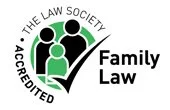




Cohabitation agreements and disputes
Many people living together believe they have the same legal protection as a married a couple yet the law does not grant as many rights to cohabiting couples who separate.
Property
You can only jointly own property in two ways, either as joint tenants or tenants in common. Joint tenants do not have distinguishable shares in the property. Upon death of one of the joint tenants their share passes to the surviving joint tenant.
Tenants in Common have distinguishable shares in the property. Sometimes a Deed of Trust is entered into, which sets out each party's share. If a Deed of Trust does not exist then the presumption is that the property is held in equal shares unless there is evidence to rebut this presumption. A Tenant in Common can leave their share in the property to who ever they chose under their Will.
As a rule the Court is bound by the Trusts of Land and Appointment of Trustees Act 1996 (TLATA). This will look firstly at who the registered owners of the property are. The Court will also enquire as to whether there is a Deed of Trust between the owners, which may provide evidence as to the proportions held in the property by each owner.
The Court will consider any evidence from either party as to additional funds invested in the property and the Court may accept that without being registered as an owner, that party does have an interest in the property.
Children and Finances
The parent who retains the day to day care of the child will be entitled to child maintenance from the other parent on behalf of that child. Child maintenance can be agreed and made on a voluntary basis and an application does not automatically have to be made to the Child Support Agency (CSA). If agreement cannot be reached an application can be made to the CSA so that Child Maintenance can be deducted directly from the non-resident parent's salary.
It might be that you are able to make further financial claims on behalf of your child under Schedule 1 of the Children Act 1989. There are a variety of Orders available and include child maintenance top up, provision for school fees and providing a home for the child whilst they are at school. Schedule 1 applications are complicated and specialist advice should be sought.
Children and Contact
'Contact' is the term used for when the parent without the day to day care of the child sees the child.
The law supports parents maintaining a meaningful relationship with their children and you can expect your ex-spouse to regularly see your children unless there is very good reason to prevent or impose conditions on contact.
If these matters effect you please complete a contact form or call us directly on 01483 302 000 or email samantha.jago@www.rhw.co.uk







